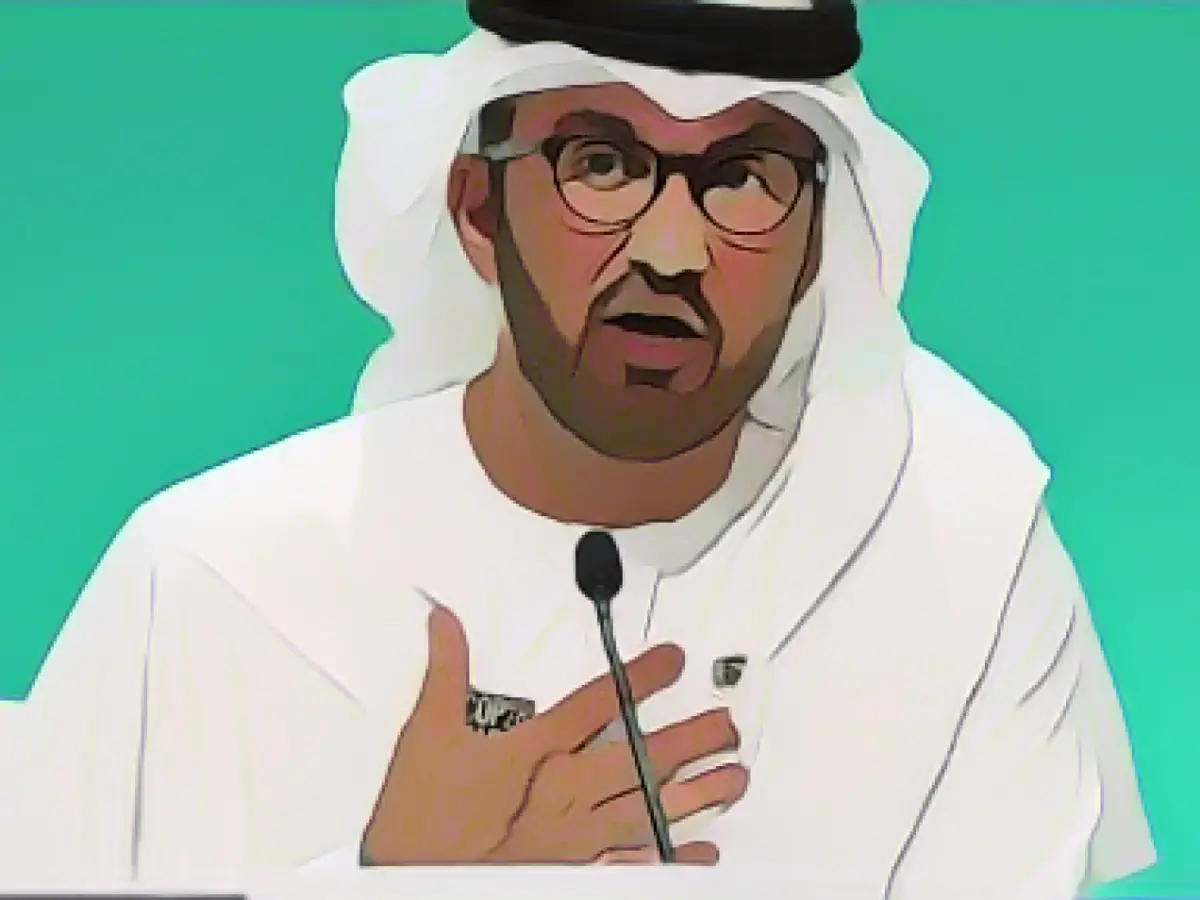World Climate Conference - "Breathtaking conflict of interest": Emirates' oil plans
At the World Climate Change Conference in Dubai, climate activists have denounced the expansion plans of the state oil company of the host country, the United Arab Emirates. The projects are "a surefire recipe for accelerating catastrophic climate change", according to a report by the organizations Urgewald, Lingo, Reclaim Finance and Banktrack. In fact, the Adnoc Group says it plans to increase its oil production by 25 percent by 2030.
The organizers wrote that it remains shocking that the head of Adnoc, Sultan al-Jaber, of all people, is now president of the current UN Climate Change Conference of almost 200 states. This was a "breathtaking conflict of interest" that would leave an "indelible stain" on COP28. "The COP President has no vision of a future without fossil fuels," it continued. Instead, his company Adnoc is pushing ahead with the expansion of oil and gas, but only wants to store a tiny proportion of the resulting greenhouse gas emissions under the desert.
According to the organizations' research, Adnoc is planning numerous new gas and oil projects. Already 17 projects have been approved. "Adnoc has no intention of changing its business model or even reducing its dependence on fossil fuels," they say.
Media report on questionable statements by Al-Jaber
Al-Jaber had only attracted a lot of criticism on Sunday: According to the Guardian and the Centre for Climate Reporting, he said in November in a video call with UN representatives, among others, that there was "no science" to prove that phasing out fossil fuels was necessary to limit global warming to 1.5 degrees compared to pre-industrial times. He also said in the interview that development without the use of fossil fuels is not possible "if we don't want to catapult the world into the Stone Age".
The International Energy Agency (IEA) has repeatedly stated that the development of new oil and gas fields is not compatible with the 1.5 degree target of the Paris Climate Agreement. However, many other countries want to approve additional oil production plans despite the climate crisis, including the USA, Norway and the UK.
No phase-out of fossil fuel production - on the contrary
Just this month, a report by the United Nations Environment Programme (UNEP) and leading research institutes revealed that the planned global production volumes of coal, oil and gas continue to exceed all limits. The production planned by countries for 2030 is more than double (110 percent more) what would be permissible according to the Paris climate targets. According to the report, global oil and gas production will continue to rise until at least 2050.
Climate activist Luisa Neubauer from Fridays for Future also criticized the COP President's statements. "When key figures cast doubt on the scientific consensus, it makes a mockery of the entire negotiation process. We are here to protect the dignity and integrity of this conference," she said. Unfortunately, it is still necessary to point to the simplest findings of climate research that have been available for decades. "Any schoolchild can understand that. This is ridiculous. And we are angry about it."
Read also:
- Year of climate records: extreme is the new normal
- Precautionary arrests show Islamist terror threat
- Numerous oil, gas and coal lobbyists at climate conference
- COP28: Emirates announce fund for climate projects
- Despite the ongoing World Climate Conference in Dubai, which is being hosted by the United Arab Emirates, critics are raising concerns about the expansion plans of the country's state oil company, Adnoc.
- At the conference, climate activists have criticized Adnoc's plans to increase its oil production by 25% by 2030, arguing that it will accelerate climate change.
- The conflict of interest arises because Sultan al-Jaber, the head of Adnoc, is also the president of the UN Climate Change Conference, a role that some see as a breach of trust.
- In a video call with UN representatives, Al-Jaber even questioned the science behind phasing out fossil fuels, a stance that has drawn criticism from climate activists.
- The International Energy Agency (IEA) has previously stated that the development of new oil and gas fields is not compatible with the 1.5-degree target of the Paris Climate Agreement.
- However, the United Nations Environment Programme (UNEP) has revealed that the planned global production volumes of coal, oil, and gas continue to exceed all limits, including plans from countries like the USA, Norway, and the UK.
- In light of these developments, climate activist Luisa Neubauer from Fridays for Future has criticized Al-Jaber's statements, saying they make a mockery of the negotiation process and undermine the integrity of the conference.
- Despite the criticism, the host country, the United Arab Emirates, has announced a fund for climate projects to be launched at COP28.
Source: www.stern.de








